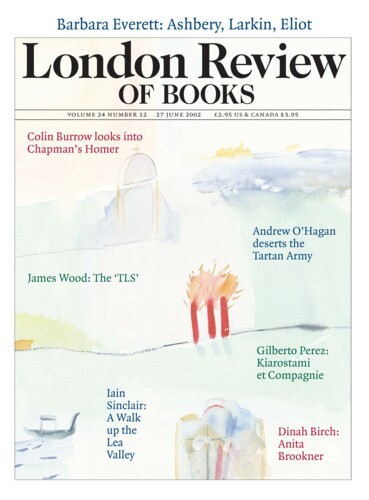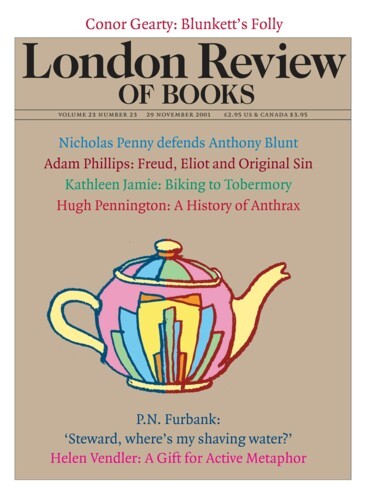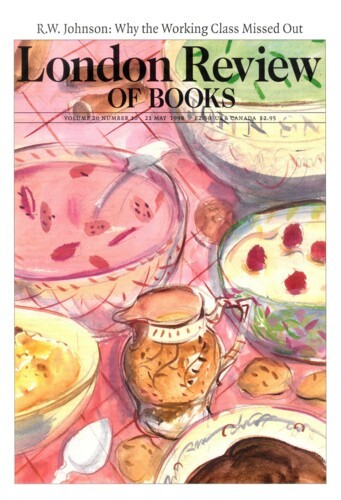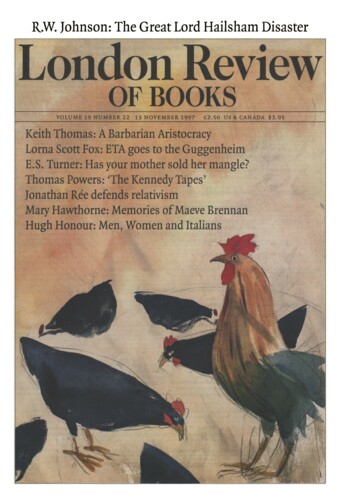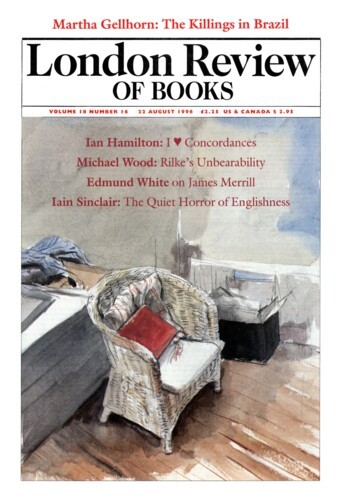A Little ‘Foreign’: Iris Origo
P.N. Furbank, 27 June 2002
Iris Origo, who died in 1988 at the age of 86, was a highly esteemed biographer and autobiographer, author of The Last Attachment (1949), about Byron and Teresa Guiccioli, his last mistress; The Merchant of Prato (1957), about a 14th-century Tuscan merchant and banker, and other Italy-oriented works. Her father, Bayard Cutting, came from an exceedingly rich New England family, with a fortune...
